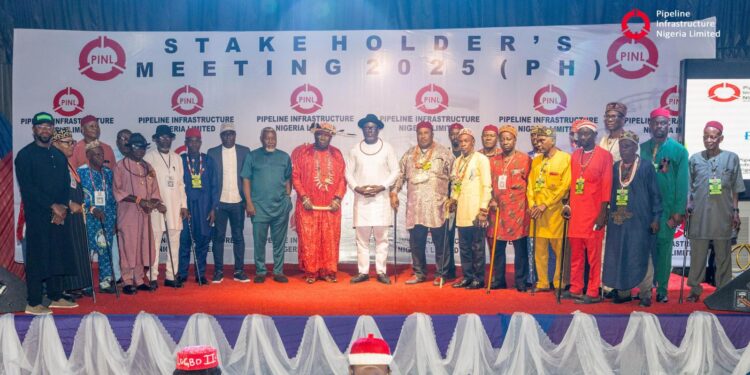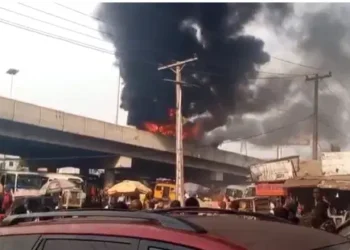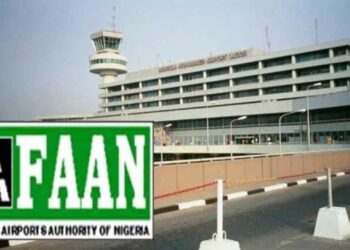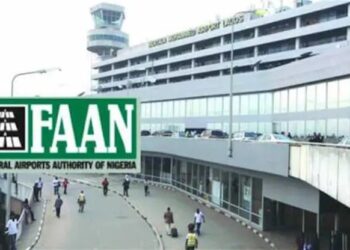For decades, oil and gas have remained the backbone of Nigeria’s economy, contributing over 85% of foreign exchange earnings and between 35% and 70% of government revenue. In this context, the role of Pipeline Infrastructure Nigeria Limited (PINL) stands out as vital. The company’s unwavering efforts to protect the nation’s oil pipelines and infrastructure have been instrumental in sustaining revenue generation and funding critical sectors of the economy.
Securing Nigeria’s Oil Lifeline
Pipeline Infrastructure Nigeria Limited (PINL) has become a key player in the oil and gas industry, thanks to its strategic interventions in securing vital national assets. The company focuses on safeguarding the eastern corridor of the Trans-Niger Pipeline (TNP) within the Niger Delta region—one of Nigeria’s most volatile yet crucial oil-producing areas.
Through consistent surveillance, rapid response, and collaboration with host communities and security agencies, PINL has helped curb vandalism, oil theft, and illegal bunkering that once crippled the nation’s oil output.
Driving Revenue Growth Through Security
PINL’s operations have significantly improved pipeline integrity and reliability. By preventing pipeline breaches and maintaining a 97% availability rate across upstream networks, the company has helped reduce crude oil losses and increase production levels. This improvement has enabled the federal government to meet its oil revenue targets more consistently.
The company’s efforts also create an enabling environment for stable government earnings through royalties, taxes, and the sale of oil and gas resources by entities such as the Nigerian National Petroleum Company Limited (NNPCL). Ultimately, this steady revenue flow supports infrastructure development and other essential national projects.
Curbing the Economic and Environmental Toll of Vandalism
Pipeline vandalism has long posed a severe threat to Nigeria’s economy. Before PINL’s interventions, vandalism led to huge revenue losses, environmental disasters, and frequent shutdowns of major oil facilities. The losses—estimated at over 470,000 barrels per day—translated to about $700 million per month in stolen or wasted crude oil.
Such attacks also caused environmental degradation, air and water pollution, and health hazards due to spills and gas flaring. Communities faced displacement, unemployment, and insecurity, while companies like NNPCL incurred massive costs in repairs and cleanup.
The Human and Ecological Impact
Pipeline explosions often result in tragic loss of lives and property, while oil spills destroy farmlands, contaminate water sources, and render soil infertile. Gas flaring releases toxic chemicals, affecting respiratory health and contributing to global warming. For local communities dependent on fishing and farming, the damage disrupts livelihoods and deepens poverty, which in turn fuels further unrest and vandalism.
Organized crime networks have exploited this situation, using illegal oil bunkering to finance violence and armed conflicts in the Niger Delta. These ripple effects discourage both local and foreign investors, limiting job creation and revenue growth.
PINL’s Strategic Interventions
To address these challenges, PINL adopted a multi-layered security and surveillance strategy that integrates technology, intelligence, and community participation.
1. Host Community Engagement
PINL prioritizes community partnership by treating host communities as stakeholders. Local youth and residents are employed as surveillance personnel, giving them a sense of ownership over the pipelines. The company also offers scholarships and skills acquisition programs—especially for women—to promote empowerment and discourage vandalism.
2. Whistleblower Initiative
Under its “see something, say something” policy, PINL rewards individuals who provide reliable information about illegal oil activities, strengthening community intelligence networks.
3. Stakeholder Dialogue
The company holds monthly meetings with traditional rulers, youth leaders, and community development committees to resolve grievances, promote dialogue, and ensure ongoing collaboration.
Operational and Military Collaboration
PINL works closely with government security agencies, including the Office of the National Security Adviser (ONSA), the military, and the Joint Task Force (JTF). These partnerships enable intelligence-driven operations that have led to the dismantling of illegal refineries and the prosecution of over 100 individuals involved in pipeline crimes.
Regular patrols, surveillance missions, and rapid response actions have significantly reduced pipeline breaches and boosted investor confidence in the oil sector.
Harnessing Technology for Pipeline Security
PINL also integrates modern technology into its operations. Working with NNPCL’s Central Command and Control Center, the company uses sensor networks and fiber optic systems to detect pressure changes, leaks, and tampering in real time. Remote monitoring via drones and satellite imagery ensures early detection and swift response to threats.
These advanced tools have contributed to achieving “near-zero” pipeline infractions in areas under PINL’s watch, particularly along the Trans-Niger Pipeline corridor.
Widespread Commendations
PINL’s impact has drawn praise from several government and community bodies. Commendations have come from the Office of the National Security Adviser (NSA), NNPCL, Federal Inland Revenue Service (FIRS), and the Bayelsa State House of Assembly Committee on Youths.
Community groups such as the Orashi National Congress (ONC), Niger Delta Progressives Alliance (NDPA), MOSIEND, Ijaw National Congress (INC), and traditional rulers across the Niger Delta have acknowledged the company’s positive influence in restoring peace and curbing illegal bunkering.
PINL’s initiatives—ranging from stakeholder meetings and youth engagement to corporate social responsibility projects in healthcare, education, and infrastructure—have transformed formerly volatile regions into zones of stability and productivity.
Pipeline Infrastructure Nigeria Limited (PINL) continues to play a pivotal role in sustaining Nigeria’s oil revenue by ensuring the security and integrity of vital energy infrastructure. Through its blend of community partnership, advanced technology, and strategic collaboration with security agencies, PINL has helped Nigeria recover billions in lost revenue and protect its environment.
The company’s model serves as a blueprint for safeguarding national assets, promoting peace in the Niger Delta, and supporting the government’s drive for economic stability and sustainable development.












